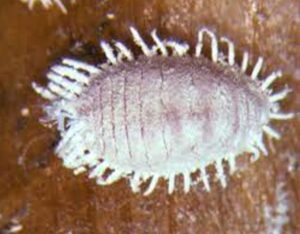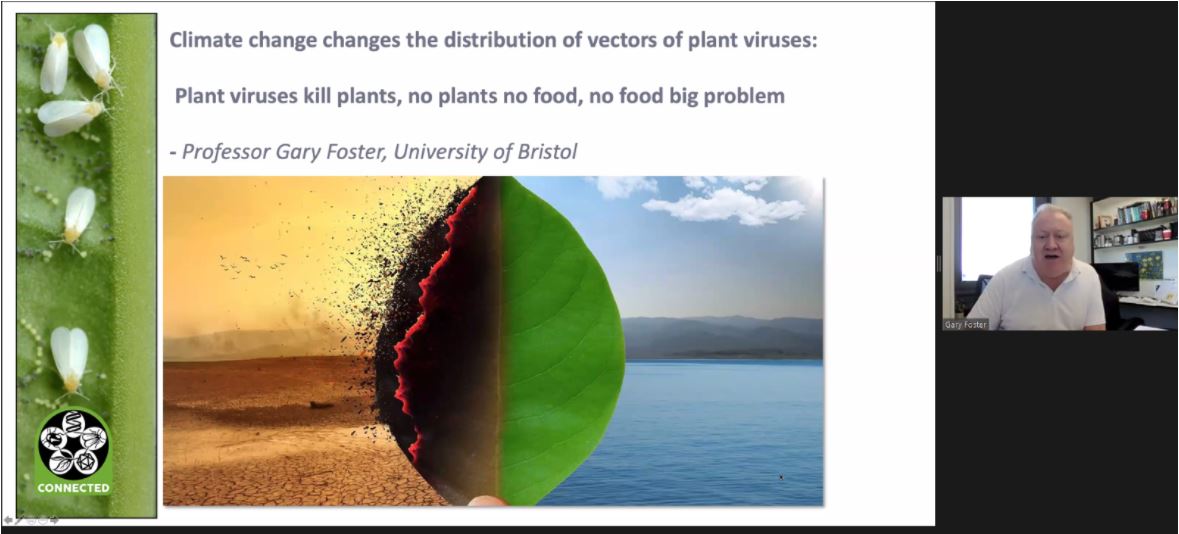Climate change and plant health: looking at the full picture
COP26, the 26th UN Climate Change Conference, is underway, and in two recent events the team at CONNECTED have been commenting upon the effects of a rapidly changing climate on plant health, and why it matters.
Our intern student this summer, University of Bristol undergraduate student Alice Bullard, undertook a literature review and found that climate change – ie unpredictable weather patterns, more CO2 and O3, and higher temperatures – is likely to have an impact on plants, viruses and insect populations, including:
- Increased generations of insects
- Increased insect overwintering survival
- Expansion of insect geographic range
- Increased risk of invasive species
- Changes in interactions between insects, host plants and natural enemies

For instance, the Pink pineapple mealybug (Dysmicoccus brevipes) and ‘Gray’ pineapple mealybug (Dysmicoccus neobrevipes) transmit pineapple mealybug wilt virus, resulting in a 40% loss of pineapple yield. A higher temperature will increase its range of suitable habitats, devastating crops in areas which are relatively unaffected at present.
When we look at the full farm-to-fork production line, warmer, wetter weather may also affect food storage, contamination, nutritional value of the food, its market value and how it is processed.
Joined-up thinking

Uniquely, CONNECTED has brought together plant pathology and entomology research communities to tackle the complex problems of vector-borne crop diseases. However, we recognise that addressing the challenges of plant vector-borne diseases in a changing climate requires a multidisciplinary approach – touching on climate modelling, food security and justice, poverty and human health.
This is partly why we brought our findings to an event for University of Bristol researchers in September. As well as encouraging discussion, the event made academics in other disciplines aware of the enormous resource of international knowledge and expertise that the CONNECTED Network represents, with over 1500 members from 84 countries.
In October our Director, Prof. Gary Foster, was invited to give a presentation at an event run by our funders, UK Research and Innovation (UKRI) in the lead up to COP26. He joined a panel of experts as they discussed the challenges and opportunities in tackling vector-borne diseases, both in the UK and globally, in the context of climate change. You can find out more by searching using the hashtag #ClimateChangeBites.
Whatever happens at COP26, it is clear that plant health needs to be part of the agenda, because as Prof. Foster said: “No plants, no food.”
Once the recording is made available we will post a link here.
